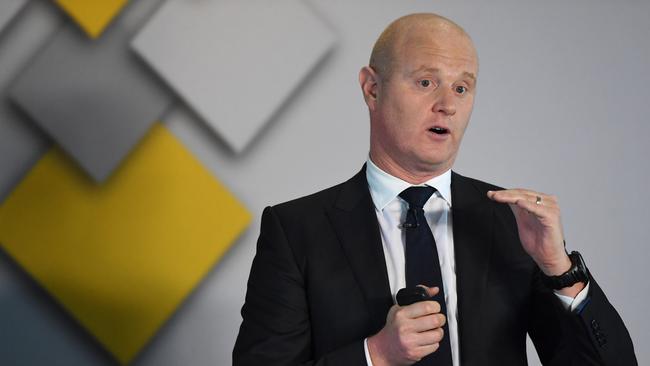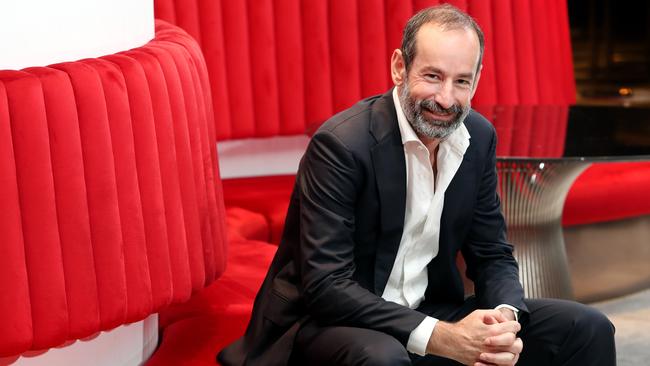
Tech giant Facebook has backed down in talks with Josh Frydenberg, who has given the company some scraps for face-saving purposes but kept the integrity of the media bargaining code intact.
The negotiations concluded on Tuesday after the Treasurer had a series of talks with Facebook chief Mark Zuckerberg that have ended with the $940bn company agreeing to restore news to its platform.
This was a deal done principal to principal, to give Facebook something to help it out of the hole it had dug for itself. Facebook copped an international storm of protest from the EU, Canada, Britain and the US about its moves and ultimately commercial pressure when advertisers pulled their business from the company.
The peace offering included more definition about just when and why a company will be designated under the media code, which triggers potential arbitration.
Facebook will also be given at least two months to negotiate before the final offer arbitration takes effect and it will not be bound by deals done with one company in talking with another.
Final judgment must await review of the actual legislation to be introduced into parliament this week, but based on Frydenberg’s statement on Tuesday, he has maintained the integrity of the code while offering some comfort to Facebook.
This was clever work from Frydenberg and was concluded after several conversations with Zuckerberg over several days in which he made clear Facebook would not be deemed liable to pay for media content posted by its members rather than the company.
This ensures the two way nature of the code preserving media content and the company’s use of media to boost its advertising business.
In a CEDA speech in Sydney on Tuesday, ACCC chief Rod Sims was careful to avoid detailed discussion of the code lest he say the wrong thing ahead of the Facebook deal.
Sims stuck to a well worn script but added new detail around his push to changes to the merger rules, where he would like the onus of proof reversed so the parties to a merger have to show that the deal will not hurt competition.
The big digital platforms, Apple, Google, Facebook and Amazon acquired 400 companies in the 10 years to 2018 without a regulator laying a hand on them. Now the US wants to undo some of the deals and regulators around the world want some way of stopping them buying small companies that end up as world beaters.
Sims is looking at this through section 50(3) of his law, which lists conditions courts should consider in examining a merger.
He also foreshadowed more litigation against the platforms in a speech that ran some of the extraordinary wave of matters the ACCC covers, from NBN pricing to ports, utilities, caravans, Zimmer frames and bank mortgages.
Wheals in motion
APA boss Rob Wheals is a big supporter of the gas industry but also has his foot on the accelerator for new technologies including helping to build so-called micro-grids, which power small communities such as mine sites.
Hydrogen is another starter, with Wheals looking at ways to pipe the energy in some form across the country.
This will help BlueScope’s Mark Vassella, who seems destined to stick with mainstream steel production because the alternatives are not yet developed, which means for him bigger risks.
The danger is coming in 2028, when Vassella has his old Blast furnace No 6 operating after a $750m reline while the rest of the market is using green steel, perhaps leaving him with a stranded investment.
Seek’s Zhaopin play
Seek co-founder Andrew Bassat’s decision to return to his roots as an entrepreneur comes as the company is about to collect on one of his earlier investments in Chinese equivalent Zhaopin.
The long-mooted selldown in the Chinese company looks set to happen, with Seek selling down from 61 per cent to 23.5 per cent, which means on paper Seek will collect as much as $780m on the way through.
The actual payout will be less, because Zhaopin management owns stock and there other dilutionary factors, but something close won’t be bad for an initial investment of $26.6m in 2006.

The move and Bassat’s new focus on innovation, leaving heir apparent Ian Narev in the job, has sent the company’s stock price plummeting 7.2 per cent to $28.17.
This came despite the company upgrading forecasts with earnings before interest tax depreciation and amortisation tipped to hit $460m versus consensus at $403m. COVID-19 — as expected — hit the last half year, with revenue and profit both down about 7 per cent.
Narev has served just under two years learning the ropes after leaving CBA three years ago.
His formal appointment marks a remarkable turnaround for his “dream team” at CBA, which had the misfortune to preside over a series of governance snafus that helped propel the industry into a royal commission.
Since then his head of retail, Magic Matt Comyn, has hit the ball out of the park running the bank, Kelly Bayer Rosmarin is running Optus, Annabel Spring has a senior role with HSBC in London, Rob Jesudason is running a hedge fund, Kate Abraham is setting up a technology-based PR business and technology boss David Whiteing is the Singapore-based chief operating officer for Standard Chartered.
All of the above presided over the CBA governance implosion that saw Catherine Livingstone take the chair and Narev was shown the door. All have ended up in top jobs, which tells you something about their talent.
The wrap against Narev was he was a great team leader but more of a collaborator than someone who fostered a team who would challenge the status quo and leadership.
Narev confided on Tuesday he had learned a lot since CBA and the good news is he still has the master in the form of Bassat at his doorstep to help guide future changes at Seek.
Bassat will be concentrating on new start-ups, much like his co-founder and younger brother Paul, who runs Square Peg.
Paul Bassat left Seek in 2011 after 14 years with the jobs listings player.
Andrew said his interest would be companies close to the Seek model in areas such as education.
His interest is strategy and investment, not day-to-day management of a $10bn company.
The Zhaopin selldown is no surprise, but the Chinese company was seen as a star, which in turn made it the target of a short-selling raid on the company from Blue Orca Capital that had zero long-term impact.
The stock hit a low of $20.70 in November, but has rallied hard since.
It opened trading on Tuesday at 68 times forecast earnings and, when your multiples are close to the moon, any upset sends the stock price plummeting.
That explains Tuesday’s action with three bits of news — including the departure of 23-year veteran and co-founder Andrew Bassat.




